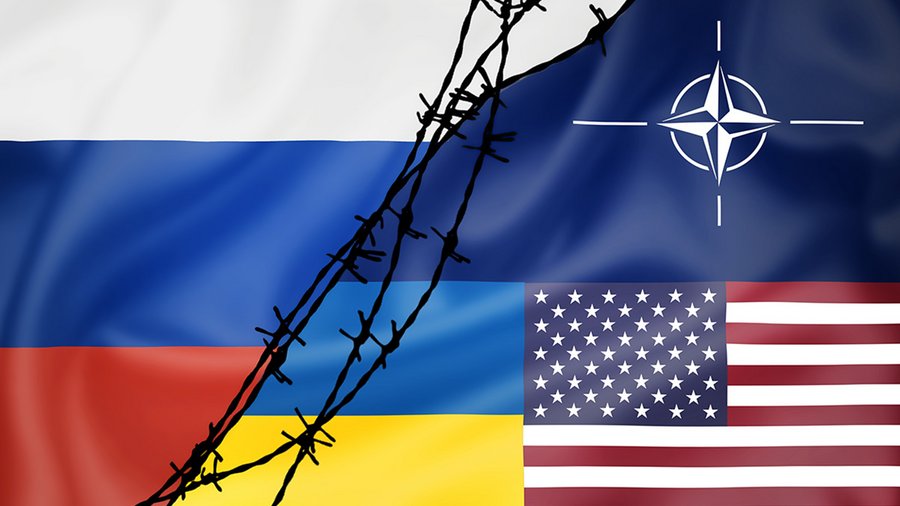Insights from military expert Dr. Alexander Vindman on the Russian army, US tactics, and NATO as “a permanent solution to insecurity”
Dr. Alexander Vindman is a retired US Army Lieutenant Colonel and the former director for European affairs for the US National Security Council, where he focused on Eastern Europe, the Caucasus, and Russia. Previously, he served as the Political-Military Affairs Officer for Russia for the Chairman of the Joint Chiefs of Staff and as an attaché at the US Embassy in Moscow, Russia and Kyiv, Ukraine. He earned his doctorate in international affairs from Johns Hopkins University School of Advanced International Studies. He is currently the director of the Institute for Informed American Leadership.
Russia’s ongoing war against Ukraine reveals contemporary geopolitical dynamics and serves as an arena for examining military strategies, political calculations, and their broader implications for global security. The perspective of retired US Army Lieutenant Colonel Dr. Alex Vindman offers valuable insight into the roles played by Russia, the United States, and NATO in both the war and the wider international order.
The Russian army’s strengths and weaknesses
In speculations about the Russian war in Ukraine, there’s widespread uncertainty about the inner workings of the Russian military. As a military veteran and expert, Alex shed light on the key strengths and weaknesses of the Russian army. He identified its greatest strength as its “mass”. With over 140 million people and a GDP of nearly two trillion dollars, Russia has a significant capacity to mobilize resources.
However, Russia’s reliance on mass does not guarantee military success, given several critical deficiencies. Alex notes a disturbing “willingness to have zero care for its personnel”, resulting in the wasteful use of soldiers and disregard for human life. Other weaknesses include pervasive corruption and a deep-rooted sense of “Russian exceptionalism and chauvinism”, leading to an overestimation of their capabilities.
US support for Ukraine
The US has resolutely supported Ukraine against Russia’s aggression even before the February 2022 invasion. Alex advocates for continued US aid and a more proactive stance against Russia. He commends the current Biden Administration for making “brilliant moves to strengthen the US internally, strengthen the economy, rebuild relationships and bridges around the world where the US was seen as an unreliable partner, build consensus, and take the most timid, reluctant elements of the alliance and bring them along in a concerted action.”
Initially, Western responses were hindered by a belief in Russian exceptionalism and a fear of escalation, which “impeded our ability to provide adequate support to Ukraine” and resulted in a “very timid” response. The US and Europe have now become “more thoughtful about the real risks of escalation,” Alex commented.
Experts and policymakers harbor “deep-seated fears of what happens to a Russia that loses,” such as the integrity of the Russian Federation and its future leadership. These concerns breed an immediate reaction of being “very conservative, even when the risks of taking such a conservative approach increases the possibilities of a more disastrous outcome, [and] a longer war scenario that spills over”.
Where US aid to Ukraine still falls short, according to Alex, is in “providing the proper capabilities in the proper quantities” of advanced weapons systems including jets, helicopters, and ATACMs (Army Tactical Missile Systems). Further, there is a need for improved logistics and personnel training to maintain Western equipment and sustain operations in Ukraine, especially by establishing a civilian contractor base within the country.
Ukraine’s NATO path to peace
Alex views Ukraine’s accession to NATO as necessary for ending the war and ensuring lasting peace. It is crucial to consider this immediately, as the “absence of bringing Ukraine into NATO is the condition for perpetual war”. He believes that “bringing Ukraine into NATO is a permanent solution to insecurity on the Eastern flank” and that this should be pursued creatively inside the context of the Russia-Ukraine war.
To “minimize the possibility for NATO forces and Russia to get into direct conflict,” Alex suggested a solution where specific operational zones are established on the front lines. Notably, Alex is confident that Russia seeks to avoid direct confrontation with NATO and the US at all costs.
Looking ahead to a post-war scenario, Alex warned that we “can’t have a situation in which Ukraine wins the war but loses the peace”. This will require major investments, primarily from the EU and the US, to help Ukraine rebuild. It will also be crucial to establish a “reformed environment for investment” in the country by setting the conditions for private equity and laying out a road map for Ukraine to join the EU.
Implications for American and global security
The US response to Russia’s invasion of Ukraine has had far-reaching implications for American national security interests globally. Alex observed that the US expected adversaries to be “more cautious about challenging the world order and [understand] that their aspirations for the use of military force would come at the consequence of a major response from the democratic world."
However, some adversaries have become emboldened as they perceive the West’s support for Ukraine as halfhearted. This has resulted in a situation where “we're starting to see our adversaries potentially test our resolve more aggressively, whether it's Iran in the Middle East, or potentially China with its major strategic exercises, and measuring the response from the West. I think that other groups or adversaries, including terrorist groups, are also seeing some opportunities in the chaos or inaction,” Alex warned.
The implications that the Ukraine conflict will have on the global security landscape depend greatly on the outcome of the war. Alex believes that “if Russia is successful and is able to control or conquer Ukraine, then that's a recipe for disaster and more aggression, a major erosion of the rules-based international system, [and] the use of military force proliferating. If Ukraine prevails and gains control of its territory, then it's a cautionary tale to the authoritarian world.” The conclusion of the conflict is therefore pivotal not only for Ukraine’s survival but also for the future of a democratic world order.
Dr. Alexander Vindman attended the Salzburg Global Pathways to Peace Initiative titled “Bear With Us: What Is To Be Done About Russia?” from October 18 to 21, 2023. This program enabled experts to convene at Salzburg Global Seminar for a high-level dialogue exploring scenarios and questions about what options exist to engage, contain, and hold Russia accountable in a post-war context.



